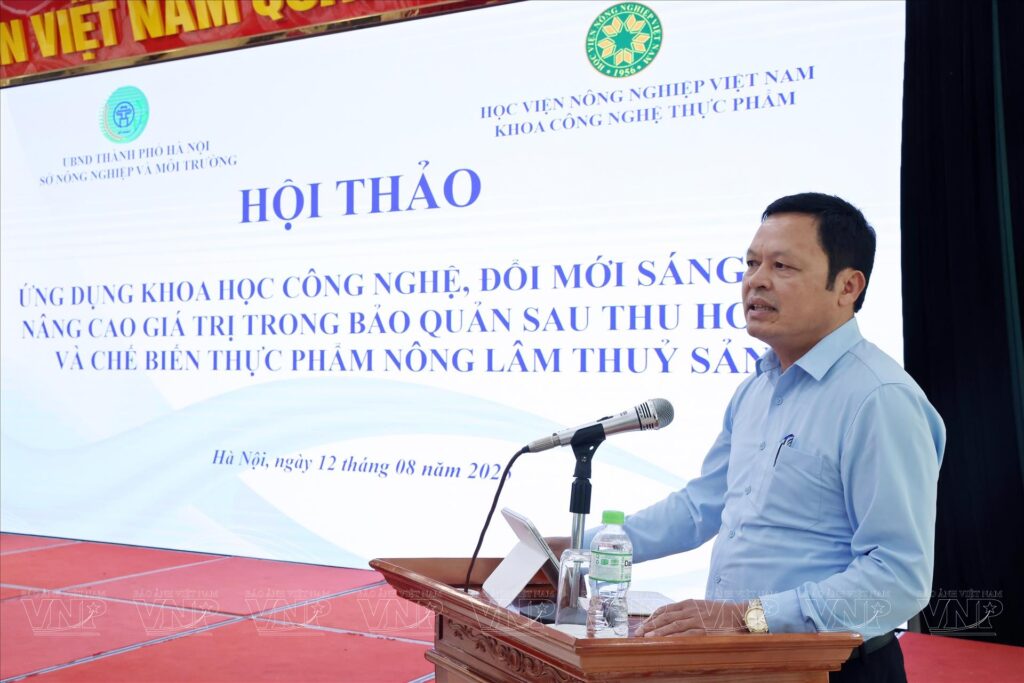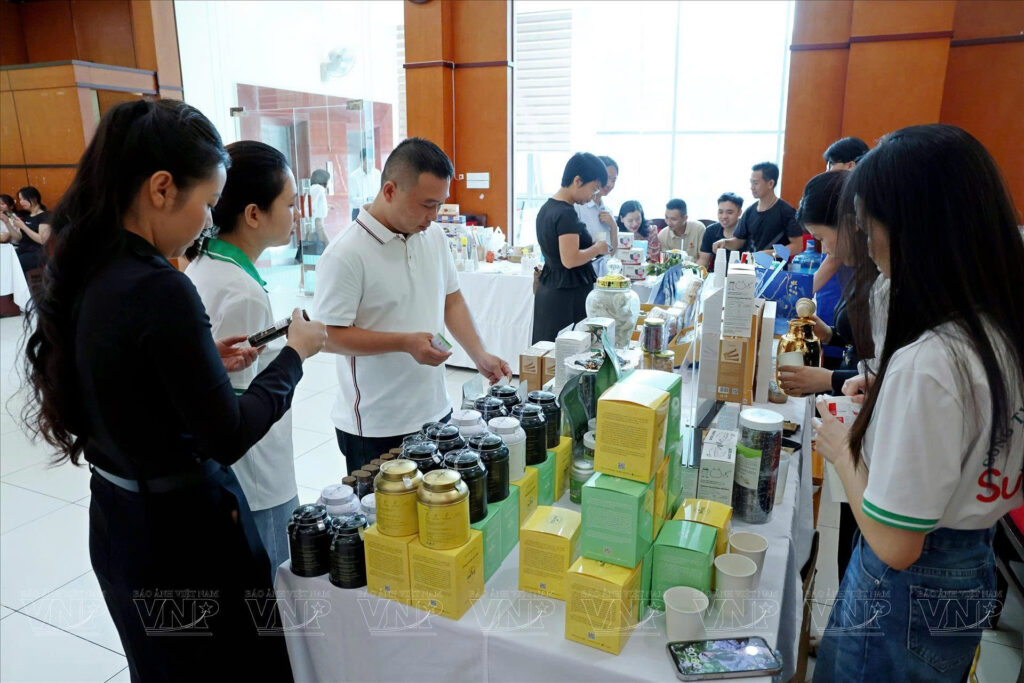On August 12, in Hanoi, a workshop on the application of science, technology, and innovation in post-harvest preservation and the processing of agricultural, forestry, and fishery products was held by the Hanoi Department of Agriculture and Environment.

Mrs. Nguyen Thi Thu Hang, Head of the Quality, Processing and Market Development Division, stated that the city currently has 13,739 agricultural, forestry, and fishery production and business establishments, including over 1,700 processing facilities, of which 98.5% are small and medium-sized enterprises (SMEs).
There are currently three types of processing models: enterprises, cooperatives, and household businesses. Many products are still consumed in fresh form, without undergoing processing, resulting in low added value.
Processed and ready-to-eat products currently account for 20–25% of total agricultural, forestry, and fishery products distributed through modern retail channels. However, Hanoi’s own processing sector only meets 20% of local consumption demand, with the remainder supplied by other provinces and cities.
The city’s agricultural processing industry still faces numerous challenges: limited technological capacity, low processing efficiency, incomplete mechanization, and a lack of investment from large enterprises. Current incentive policies have not been sufficient to attract significant investment, particularly in the fields of agricultural processing and high-tech agriculture.
Mr. Nguyen Huy Toan, Chief Technology Officer of Verysell Group, emphasized the need for companies to accelerate the application of artificial intelligence (AI) in food processing. He suggested adopting inspection equipment to detect defects and foreign objects, optimize processing parameters (such as temperature and time), and applying IoT sensors to monitor temperature and humidity during storage. Additionally, blockchain technology can be used to ensure transparent traceability of food origins.

Mr. Ta Van Tuong, Deputy Director of the Hanoi Department of Agriculture and Environment, stated that in implementing Resolution No. 57-NQ/TW of the Politburo on breakthroughs in science and technology, the Department will review and propose mechanisms and policies to encourage the development of agricultural processing and attract investment in processing infrastructure.
The sector will promote the transfer and application of technology in food safety and quality management, and encourage enterprises to collaborate with research institutions to develop high-value products using techniques such as irradiation, hot steam treatment, modified atmosphere packaging, and cold storage.

Special attention will be given to developing processing for key products such as rice, vegetables, fruits, meat, eggs, and dairy, in line with national and local product restructuring strategies. The sector will also promote mechanization, and develop logistics networks and processing facilities in concentrated production areas.